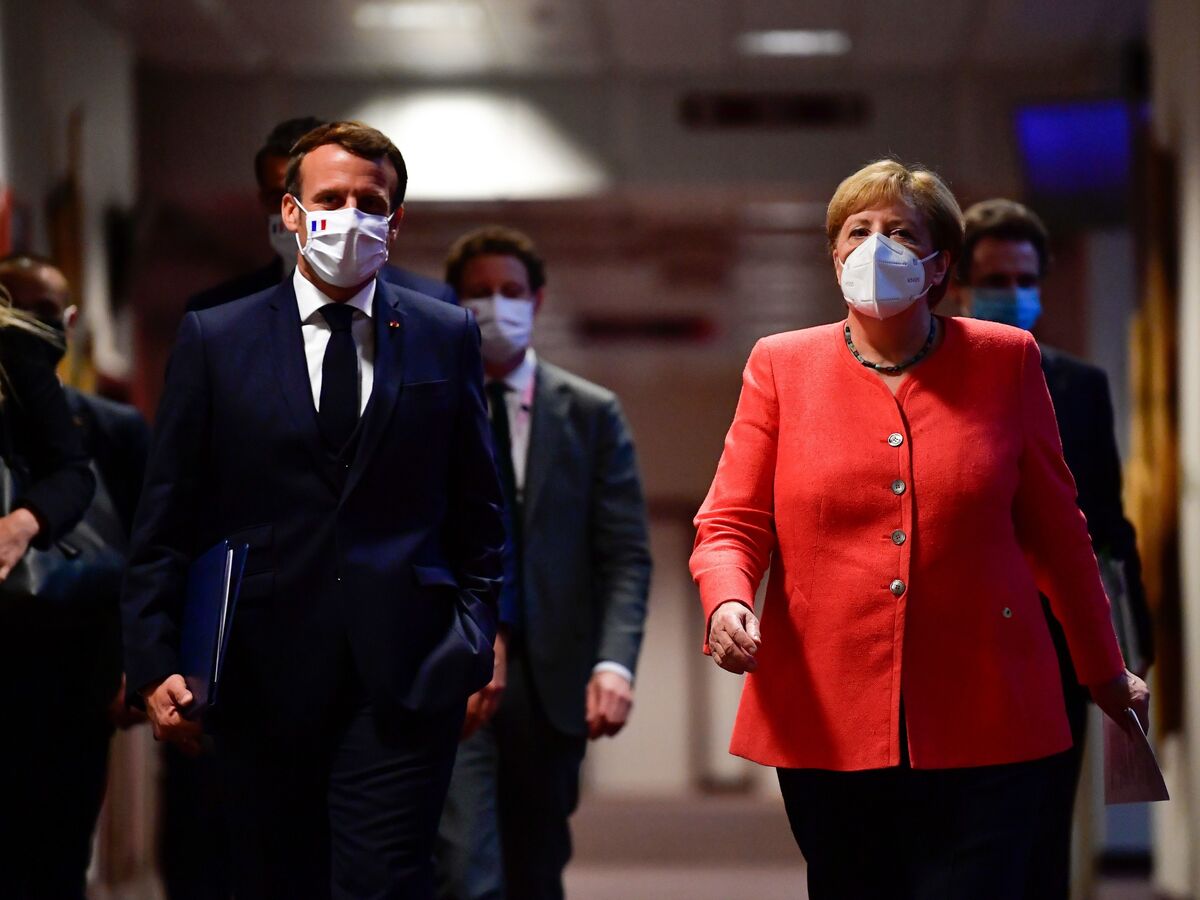
[ad_1]

French President Emmanuel Macron and German Chancellor Angela Merkel arrive for a joint news conference at the end of the European summit at EU headquarters in Brussels on Tuesday.
John Thys/AFP via Getty Images
hide caption
toggle caption
John Thys/AFP via Getty Images

French President Emmanuel Macron and German Chancellor Angela Merkel arrive for a joint news conference at the end of the European summit at EU headquarters in Brussels on Tuesday.
John Thys/AFP via Getty Images
European Union leaders emerged from five days of intense talks with a landmark 750 billion euro ($858 billion) plan to rescue the bloc’s economies from the massive, ongoing assault of the COVID-19 pandemic.
Exhausted heads of state and government finally voted unanimously in Brussels early Tuesday to jointly issue debt to be disbursed through grants and loans to member nations as they face their worst economic downturn since the Great Depression.
German Chancellor Angela Merkel hailed the agreement by the 27-member group as “truly historic.” She and French President Emmanuel Macron had spearheaded the effort to push the deal through.
Negotiations over the package had pitted some of the EU’s strongest economies – including the Netherlands, Sweden, Denmark and Austria — against the grouping’s poorer states, such as Spain and Italy. At issue was how the burden would be shared and under what conditions the money would be disbursed.
Most notably, the wealthier nations had sought to ensure that the rescue package be made up mostly of loans. Instead, the huge sum will be split between 360 billion euros ($412 billion) in loans and 390 billion euros ($446 billion) in grants that would not need to be repaid. The money will be raised collectively by selling bonds.
In the five days of talks in the Belgian capital, governments debated not only the terms of the recovery package but also a seven-year EU budget worth about 1.1 trillion euros ($1.26 trillion).
In a news conference European Commission President Charles Michel called the agreement a “pivotal moment” for Europe and said it shows the bloc’s solidarity at a historically trying time.
“This agreement sends a concrete signal that Europe is a force for action,” Michel said.
We did it! We have reached a deal on the recovery package and the European budget for 2021-2027.
This is a strong deal. And most importantly, the right deal for Europe right now. #EUCO pic.twitter.com/c6fQ5ppwpf
— Charles Michel (@eucopresident) July 21, 2020
Fear of failure was apparently strong enough to keep the negotiations – originally scheduled to last just two days – on track for what turned out to be a marathon session. A failed summit amid the ongoing coronavirus crisis, many feared, would have thrown the EU’s future as an effective bloc into doubt.
News of the deal pushed the euro to a four-month high of $1.1470.
Dutch Prime Minister Mark Rutte, seen as a key obstacle to a deal, acknowledged “a few clashes,” during the talks, but said “that’s all part of the game.”
Merkel said that Europe “has shown it is able to break new ground in a special situation.”
“Exceptional situations require exceptional measures,” she said at the news conference.
NPR’s Rob Schmitz in Berlin contributed to this report.
[ad_2]
Source link
